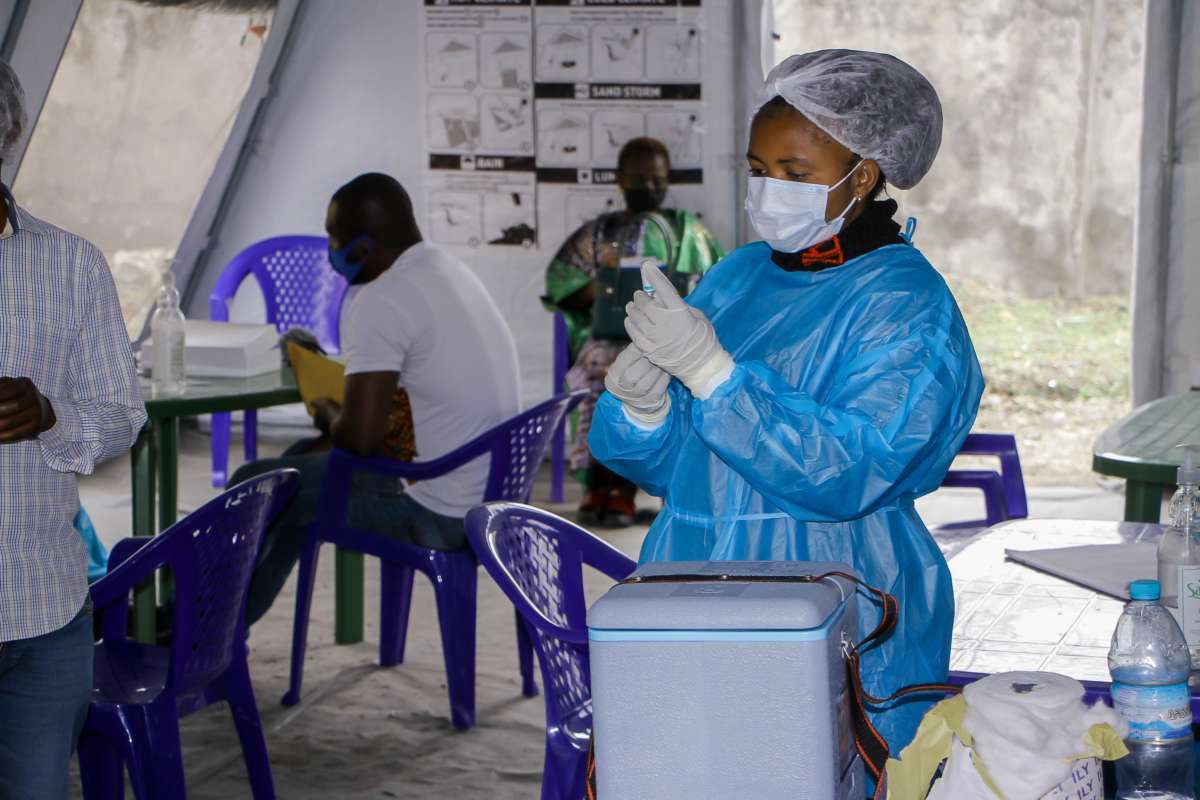Support justice-driven, accurate and transparent news — make a quick donation to Truthout today!
Experts from the World Health Organization said Wednesday that global coronavirus deaths remain stunningly high two years into the pandemic as highly contagious variants — including Omicron and its relative — continue to circulate and possible new mutations loom.
Dr. Maria Van Kerkhove, an infectious disease epidemiologist who serves as the WHO’s Covid-19 technical lead, said during an event that this week is the “sixth week in a row that we’re seeing increasing reports of deaths” from the coronavirus even as cases appear to be moving downward in parts of the globe, prompting some rich countries to begin easing public health restrictions.
Van Kerkhove cautioned world leaders against viewing the seeming decline in infections as evidence that the pandemic is on its way out, noting that the trend could be due to a precipitous drop in testing following the initial Omicron surge, which pushed recorded cases to new highs.
Emphasizing the alarming rise in deaths in recent days, Van Kerkhove noted that “almost 75,000 people died” of Covid-19 over the past week alone. According to figures from Johns Hopkins University, the coronavirus is killing more than 10,300 people each day on average.
“We know that is an underestimate,” Van Kerkhove continued. “There is variation across the world in terms of increasing and decreasing cases and deaths. But at this point in the pandemic, when we have tools that can save people’s lives, this is far, far too many. The big worry, really, is this increasing trend.”
“Increasing deaths for six weeks in a row is not the situation we should be in right now,” she added.
Given that Covid-19 death rates are far higher among the unvaccinated, the WHO has emphasized the importance of ensuring equitable distribution of vaccine doses worldwide.
But major pharmaceutical companies have thus far refused to take part in WHO-backed technology transfer efforts, denying developing countries the tools necessary to produce vaccines for their populations and leaving billions of people without access to lifesaving shots.
Just 10.6% of people in low-income countries have received at least one coronavirus vaccine dose, according to Our World in Data. If inequities persist, the WHO has warned, Africa may not be able to achieve 70% vaccination against Covid-19 until late 2024.
On Wednesday, the German company BioNTech announced a new plan to deliver mobile coronavirus vaccine factories to Africa in a purported effort to ramp up production on the continent. While the head of the WHO welcomed the initiative, critics argued that it reeks of a ploy by BioNTech to secure its grip on its vaccine recipe — which was developed with substantial public funding — and undercut Africa’s ongoing efforts to independently manufacture mRNA shots.
In December, public health experts identified more than 100 firms in Africa and elsewhere across the Global South that currently have the capacity to produce coronavirus vaccines. All that’s needed, according to experts, is a transfer of vaccine technology and manufacturing processes that pharmaceutical companies and rich nations have thus far withheld.
“After a year of stalling efforts to scale up global vaccine production, BioNTech’s pop-up vaccine factories are little more than a neo-colonial stunt to try and maintain control of this lifesaving technology in Africa,” said Tim Bierley, pharma campaigner at the U.K.-based advocacy group Global Justice Now. “This is inexcusable when we know there are several factories in Africa with the capacity to create these kinds of vaccines today, if BioNTech and others were willing to share the tech in this global emergency.”
Press freedom is under attack
As Trump cracks down on political speech, independent media is increasingly necessary.
Truthout produces reporting you won’t see in the mainstream: journalism from the frontlines of global conflict, interviews with grassroots movement leaders, high-quality legal analysis and more.
Our work is possible thanks to reader support. Help Truthout catalyze change and social justice — make a tax-deductible monthly or one-time donation today.
